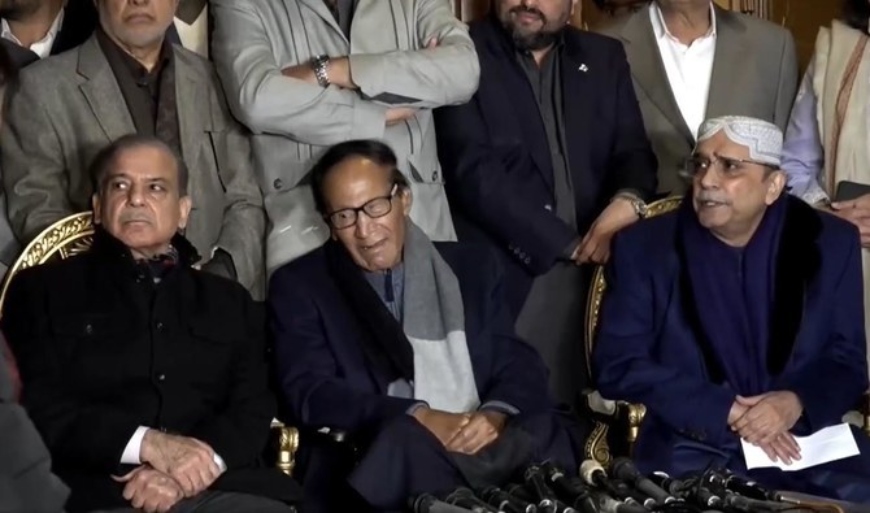Imran Khan's Party Sidelined As Coalition Government Forms In Pakistan
Pakistan's political landscape witnessed a seismic shift as Imran Khan's party sidelined as coalition government forms in Pakistan. The agreement, brokered between rival political factions, marks a significant departure from the status quo and sets the stage for a new era of governance in Pakistan.
Author:Paula M. GrahamReviewer:Hajra ShannonFeb 15, 2024899 Shares28.9K Views

Pakistan's political landscape witnessed a seismic shift as Imran Khan's party sidelined as coalition government forms in Pakistan. The agreement, brokered between rival political factions, marks a significant departure from the status quo and sets the stage for a new era of governance in Pakistan.
The coalition government deal brings an end to the political stalemate that gripped Pakistan, paving the way for a resolution to the protracted deadlock and opening the door for new alliances to emerge. The agreement signals a departure from the gridlock that had paralyzed the country's political system and offers hope for stability and progress in the days ahead.
Imran Khan's party sidelined as coalition government forms in Pakistan, marking a significant setback for the incumbent prime minister and his political allies. The sidelining of Khan's party reflects shifting alliances and changing political dynamics in Pakistan, as rival factions seek to assert their influence and shape the country's future direction.
During a press conference held in Lahore on Tuesday, the PMLN's former Prime Minister Shahbaz Sharif and the PPP's former President Asif Ali Zardari, alongside representatives from four other parties, disclosed their plans to establish a coalition government.
Furthermore, the PMLN issued a statement declaring Shahbaz Sharif as the party's nominee for prime minister. Earlier that day, the PPP's chairman Bilawal Bhutto Zardari had affirmed his party's endorsement of the PMLN's prime ministerial candidate.
In the recent election held last Thursday, the PPP secured 54 seats, placing third behind independent candidates, many of whom were aligned with former Prime Minister Imran Khan's Pakistan Tehreek-e-Insaf (PTI) party, which claimed 102 seats, and the PMLN, led by former Prime Minister Nawaz Sharif, which garnered 73 seats, according to the country's election commission.
With none of the three major parties securing a parliamentary majority, they were all unable to independently form a government.
The formation of a coalition government has far-reaching implications for Pakistan's political future, reshaping the balance of power and influencing the trajectory of governance in the country. The emergence of a new ruling coalition signals a departure from the dominance of single-party rule and heralds a more pluralistic approach to governance, with diverse voices and perspectives represented in decision-making processes.
While the coalition government deal offers hope for stability and consensus-building in Pakistan, it also poses significant challenges and opportunities for the country's leaders. Building consensus among coalition partners, addressing pressing issues such as economic reform and security challenges, and delivering on electoral promises will be key priorities for the new government as it navigates the complexities of governing in a diverse and dynamic political landscape.
According to analysts, Pakistan requires a stable government with the political clout to make the difficult choices necessary to lead the nation out of its economic crisis.
Conclusion
Imran Khan's party sidelined as coalition government forms in Pakistan. The coalition government deal in Pakistan marks a pivotal moment in the country's political history, reshaping the balance of power and opening new possibilities for governance and progress.
As Pakistan embarks on this new chapter, the challenges and opportunities ahead will require bold leadership, constructive engagement, and a commitment to inclusive and accountable governance to realize the aspirations of the Pakistani people.
Jump to

Paula M. Graham
Author

Hajra Shannon
Reviewer
Latest Articles
Popular Articles